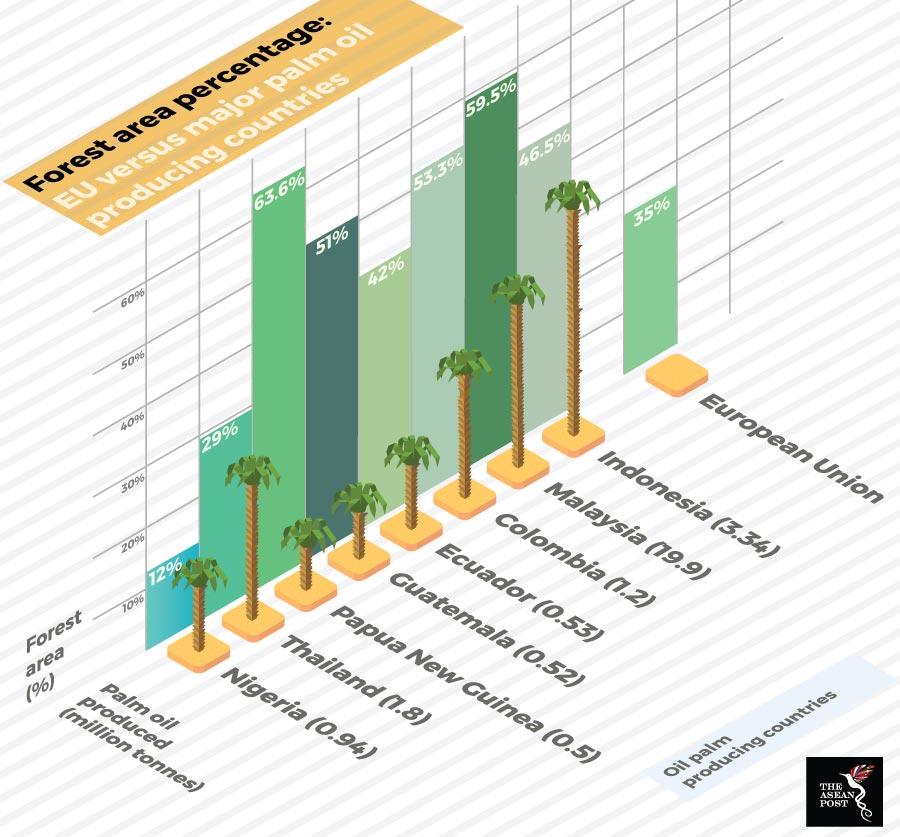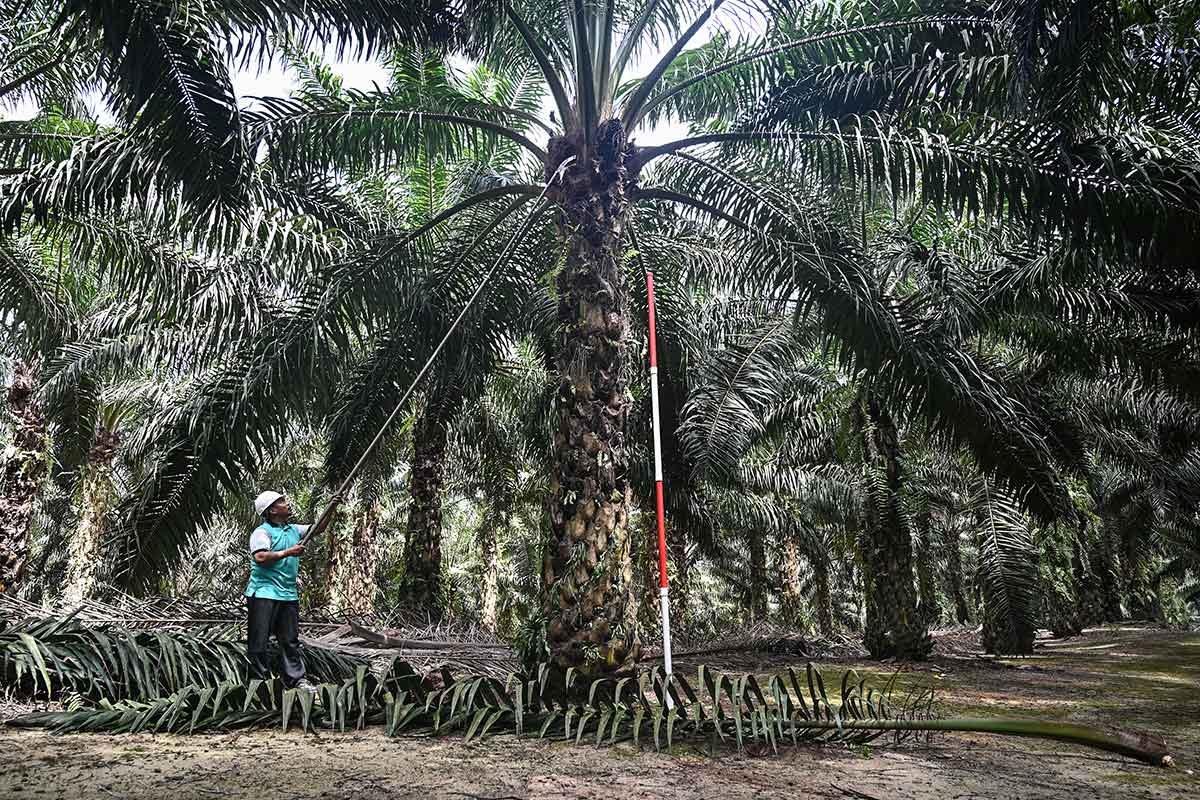From cooking oil to soap, from sunblock to biofuel, it’s little wonder that Europe imports as much as about 1.9 million tons of palm oil a year. Of late, however, the European Union (EU) has been heavily campaigning against the commodity.
The argument is based on the belief that palm oil is not a “green fuel”, meaning it is not environmentally sustainable, and should not be promoted as it causes deforestation. The European Parliament, in fact, has made the push to phase out the use of palm oil starting in 2023, ramping up to an all-out ban in 2030.
Countries like Malaysia and Indonesia, which account for a combined 85 percent of the global palm oil supply, will be hit hard if the EU – Malaysia’s second largest importer of palm oil – chooses to continue its campaign against palm oil.
The EU’s argument is built on one of environmentalism. The question, however, is whether that foundation is as solid as the EU is making it out to be, or if the EU is – in fact – hiding a more sinister agenda in its push against palm oil.
On 20 March, Malaysia’s local news wire provider, Bernama, reported that several French parliamentarians and political leaders had admitted that the EU’s negative campaign on Malaysian palm oil was unfounded.
"The members of parliament said they have gone to Malaysia and felt that Malaysia has a good environment and admitted that our palm oil has received negative publicity. They themselves have gone to Malaysia and saw for themselves and admitted that the practices in the Malaysian palm oil industry is not as bad as claimed," Bernama quoted Malaysia’s deputy prime minister Wan Azizah Wan Ismail as saying.
The pot and the kettle
The EU has pointed to deforestation as one of its major arguments against palm oil. This, however, is undeniably hypocritical. If the EU is indeed concerned about deforestation, then statistics say that it would be better for the Union to look at its own backyard as opposed to palm oil-producing countries like Indonesia and Malaysia.
According to the Convention on Biological Diversity Secretariat, the EU’s total forest area percentage is at 35 percent of its land mass. Meanwhile, Indonesia’s is at 46.5 percent, and Malaysia’s is at 59.5 percent. Statistics vary across different sources but even Wan Azizah’s most current statement that it was at “more than 53 percent” proves that forests in countries like Malaysia are thriving much more than they are in Europe.

Furthermore, on 4 April, Rubber Industry Smallholders Development Authority (RISDA) chairman Rosely Kusip revealed that Malaysia’s palm oil industry standards ensure that deforestation does not become an issue.
“Smallholders are required to cut down their oil rubber trees of 15 to 20 years and replace it with palm trees. As such, this plantation activity has not affected the biodiversity and ecosystem of the forest,” he said in a statement.
But what if despite the surmounting evidence that palm oil is not bad for the environment and does not damage countries’ ecosystems, the EU rejects all of that and insists on banning the commodity and replacing it with other vegetables oils “deemed” less destructive to the environment?
Killing biodiversity
Proponents of palm oil have accused the EU of harbouring an agenda to promote other vegetable oil alternatives such as soy, sunflower or rapeseed, and that these oils are much worse for the environment. A report published in 2018 shows that these palm oil proponents aren’t the only ones who think so.
According to the International Union for the Conservation of Nature (IUCN) in their report “Palm Oil and Biodiversity”, existing vegetable oils that could theoretically replace palm oil would be far more damaging to the environment because they would need more land.
“Half of the world’s population uses palm oil in food, and if we ban or boycott it, other, more land-hungry oils will likely take its place,” said Inger Andersen, IUCN director general in a press release.
In fact, palm oil – by its very nature – is characterised by its high yield relative to other vegetable oils, meaning more of it can be produced from a given area of farmland than other oil crops. The latter require up to nine times more land than oil palm to produce the same amount of oil.
Palm oil is currently produced from just 10 percent of all farmland dedicated to growing oil crops, yet accounts for 35 percent of the global volume of all vegetable oils. Moving to other alternatives may be disastrous for the world.
It would seem that the EU’s campaign against palm oil is built on fragile arguments which have already been disproven time and time again. If the environment is the EU’s main concern then palm oil is, in fact, saving the world from more disastrous options; options which the EU apparently have no qualms about. It is up to the EU to come clean about its reasons for attacking palm oil and to stop pointing fingers until it does so. The world is watching.
Related articles:
Dwarf trees offer hope for palm oil's future
Indonesia threatens to ban European goods
